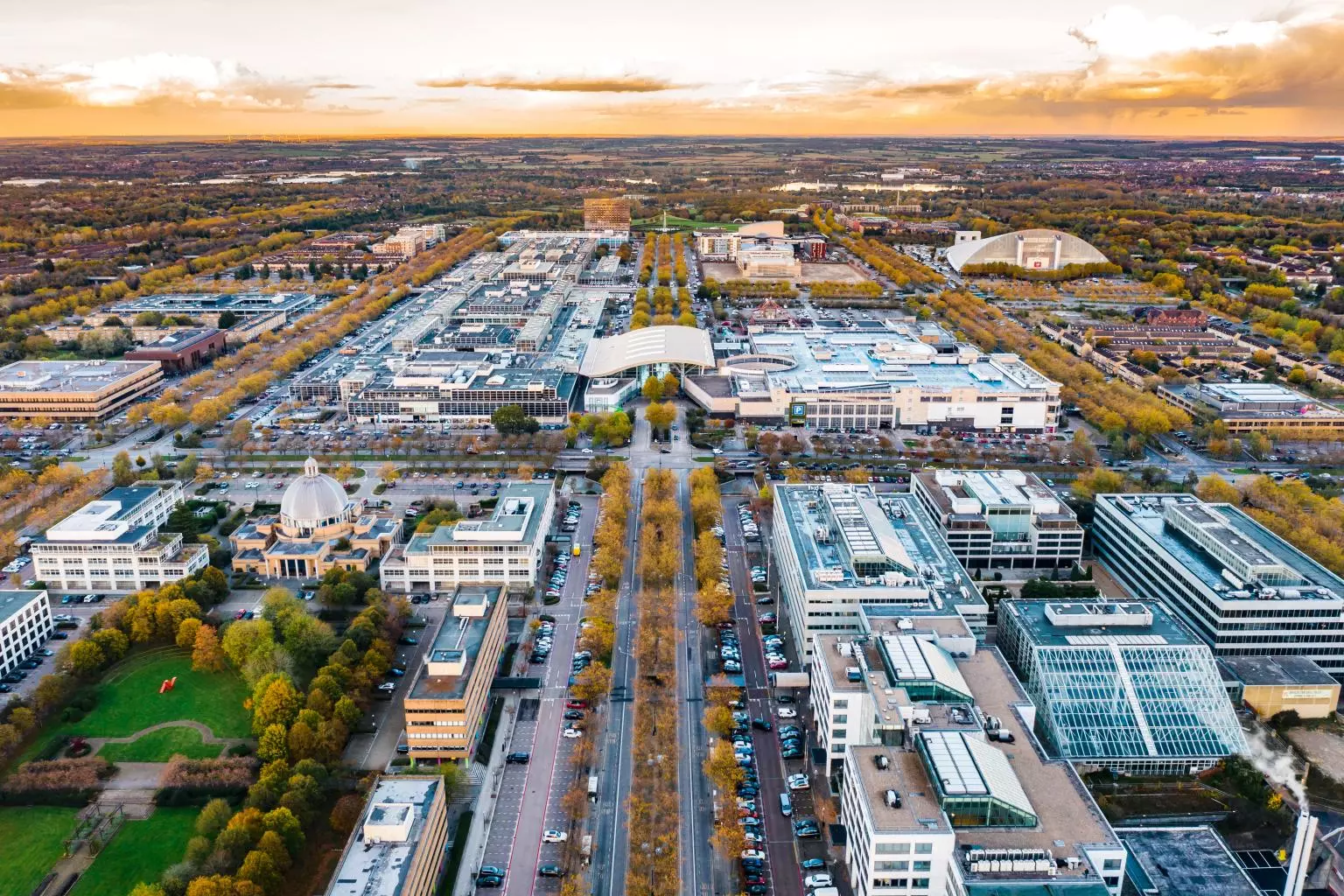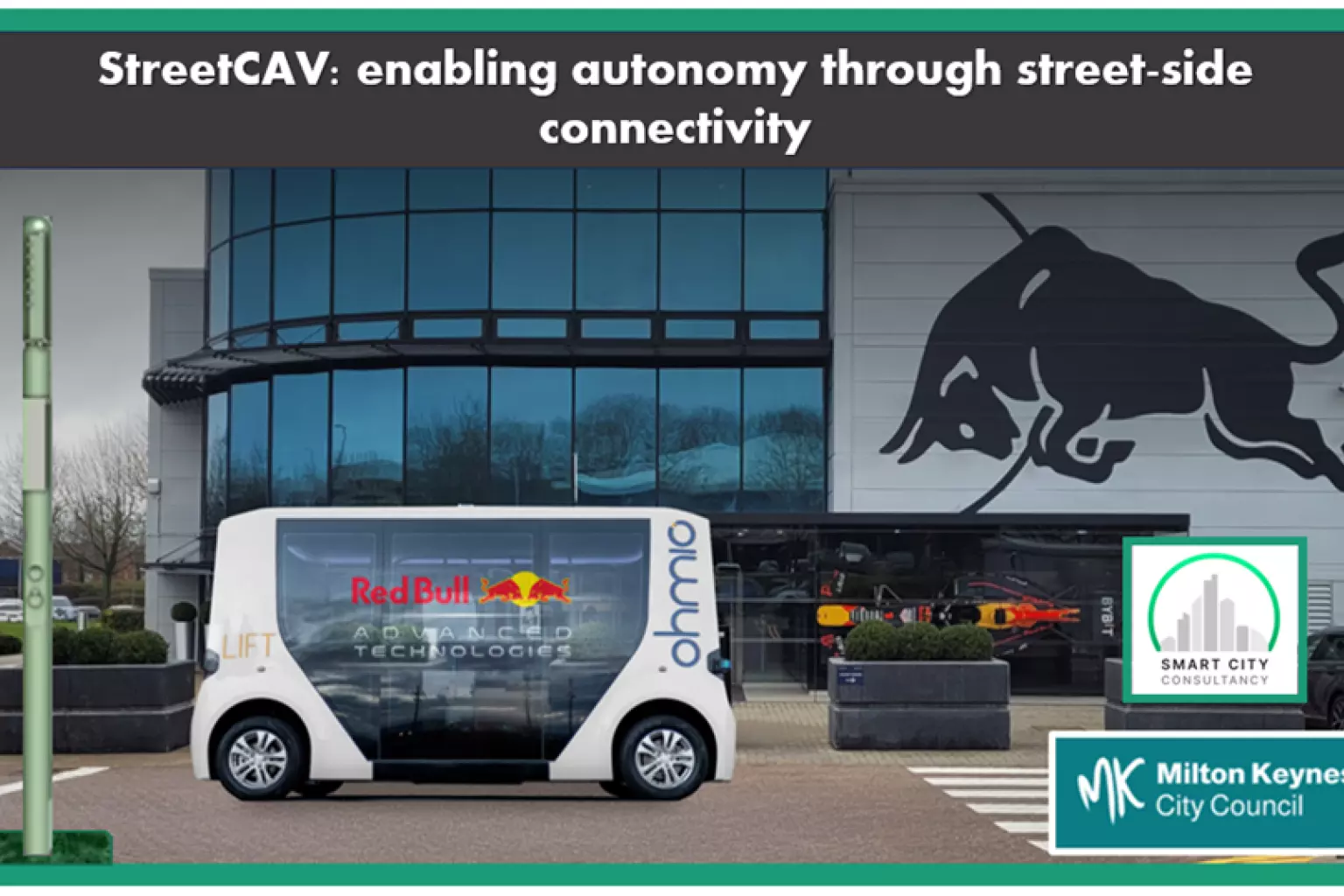Welcome to MK:Smart, the home page for all things Smart City in Milton Keynes. Milton Keynes has been a leading UK Smart City since 2014, when the successful three-year MK:Smart programme was launched. This highly influential initiative shaped the smart city agenda not just in Milton Keynes but at an international level, and established Milton Keynes as one of the leading smart cities in the world.
The comprehensive research and development programme that began back in 2014 continues to foster innovation and growth in Milton Keynes.
In March 2024, The Times recognised that Milton Keynes (MK) is one of the best cities to live in. MK offers a vibrant lifestyle with ample...

The GATEKEEPER project, a large-scale pilot initiative across Europe focusing...

Milton Keynes City Council secured £1m government funding for drone...

Milton Keynes City Council and partners secured £2m grant funding for new...

Join us for an exciting evening at the Female Founders Lounge! This in-person event is a unique opportunity for female entrepreneurs to...
Use the buttons below to filter projects by theme and organisation:
Citizen ForensicsThe Citizen Forensics project explores how digital technologies impact (and have the potential to enhance)… | ||
GatekeeperThe main objective of the Project is to create a GATEKEEPER that connects healthcare providers,… | ||
GreenDATAA new project to capture, store and share power generation and use data from domestic… | ||
iSpot NatureiSpotnature.org is a citizen science platform for biodiversity run by The Open University (OU). iSpot… | ||
MarKMarK (Advanced Radio in Milton Keynes) project aims at developing the next generation 5G infrastructure… | ||
MK Drone PortThe City Council will work with Cranfield University’s Drone Innovation Hub and Satellite Applications Catapult… | ||
Secure Adaptive Usable Software Engineering (SAUSE)SAUCE investigates and develops systematic, novel, and multidisciplinary approaches, especially in areas of requirements engineering,… | ||
Sensory Explorations of Nature in School Environments (SENSE)Studies indicate that less than 25% of British kids regularly connect with local nature, leading… | ||
StreetCAVThe StreetCAV project (CAV standing for ‘connected and autonomous vehicles’ which vary from one-seaters up… | ||
REASONREASON develops new AI systems that use psychosocial processes of crowd behaviour to improve human… | ||
Smart cities in the makingThe "Smart Cities in the Making" project conducted an in-depth study of Milton Keynes, a… | ||
FalconProject FALCON (Flexible Approaches for Low Carbon Optimised Networks) investigated ‘Smart Grids’, working with local… | ||
Governing and designing urban artificial intelligences and robotics to attain more just and sustainable urban mobilitiesThis proposal is for an inter disciplinary research network that assists in the development of… |